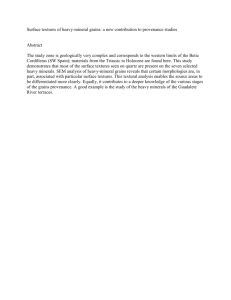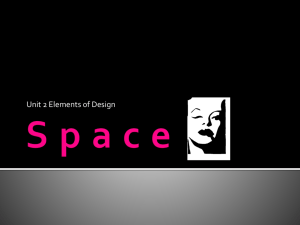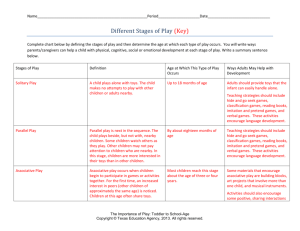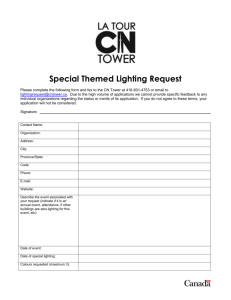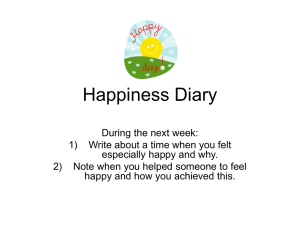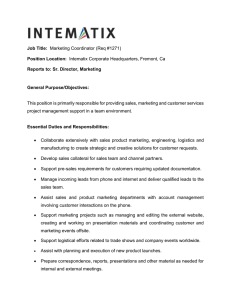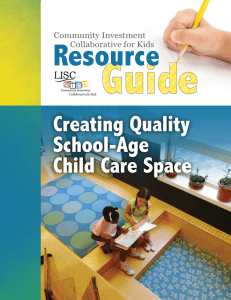4.01 ECE Environments
advertisement
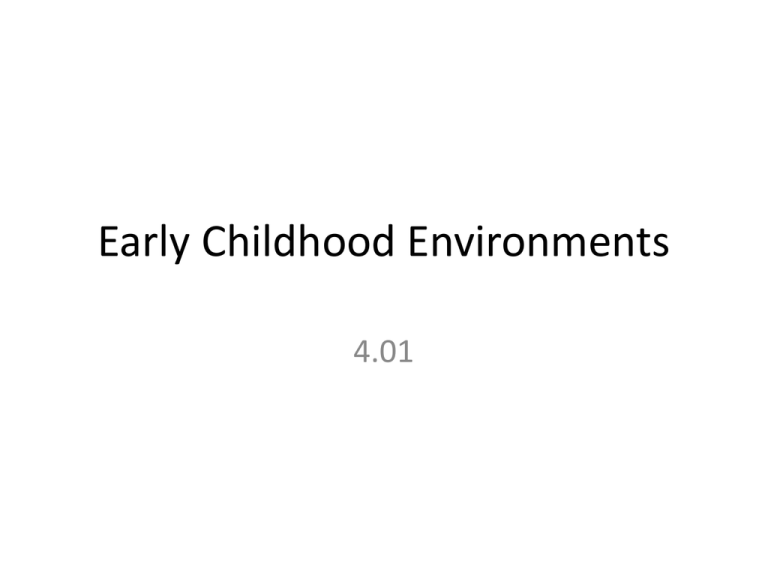
Early Childhood Environments 4.01 What elements are involved in creating developmentally appropriate environments for children? • Space needs • Furnishings, equipment, toys, learning materials and supplies • Elements to create atmosphere Basic Space Needs Family-friendly space • • • • Inviting and convenient entrance Space to sign children in and out Space for visitors to wait Display space for postings and classwork (promotes self-concept for children) • Observation space Basic Space Needs Space to meet needs of staff • Locked space for personal belongings • Private area for conferencing Basic Space Needs Space to meet basic needs of children • • • • • • • • Napping Toileting Handwashing and toothbrushing Preparing meals and snacks Serving and eating Storing children’s belongings First Aid and emergency responses Isolation space for children who become ill Basic Space Needs Indoor space • Open space for large – group activities • Clearly defined, separate spaces for each learning center Basic Space Needs Outdoor play space • Space between play equipment for ease of movement • Protection from sun and animals (sandbox, fence, etc.) • Visibility on play yard • Play space accessibility Developmental space needs for age groups • • • • Infant and toddler programs Preschool programs School-age programs Programs for children with special needs Infant and toddler programs • • • • • • • Diaper changing areas Easy access to diaper disposal Easily washed floors Changing tables at proper height Hand washing sinks near diaper changing area Low windows Warm rooms for comfort Preschool programs • • • • Child-size bathroom fixtures Low tables with child – size chairs Storage for cots An isolation room School-age programs • • • • • Lots of room for interaction and games Separate space for school-age and younger children Private, semi-secluded spaces for reading, relaxing, etc. Private storage space for belongings Space for interest activities –hobbies, homework, computers, playground Programs for children with special needs • • • • • • • Easy wheelchair/handicapped access Wider classroom pathways Ramps on the entrance One or more large toilet stalls Grab bars in the toilet stalls One wheelchair-accessible sink and mirror Wheelchair-accessible tables for eating and activities Furnishings, equipment, toys, learning materials, and supplies Furnishings • Items of furniture – chairs, tables, bookcases, etc. • Moveable, not electrical or electronic Equipment • Larger, generally more expensive items • Often electronic Toys • Smaller, generally less expensive items • Used by children for play, results in learning Learning materials • Items used for educational activities • Used many times before they wear out Supplies • Items used to complete activities • Typically, these items are “used up” and must be restocked Elements to create atmosphere • • • • Sound Color Lighting Patterns and textures Sound • High noise levels fatigue children and make them unable to concentrate • Use design features to absorb, filter, and limit excess noise Color • Colors affect children’s anxiety levels and behaviors • Use appropriate colors to suit purposes of areas in the classroom Lighting • Natural light is healthy for children • Fluorescent lighting can be harsh and can cause fatigue and eye strain • Design lighting to be restful and healthy Patterns and textures • Patterns and textures make an area more homey and cozy • Use carefully chosen patterns and textures to make children feel at ease


